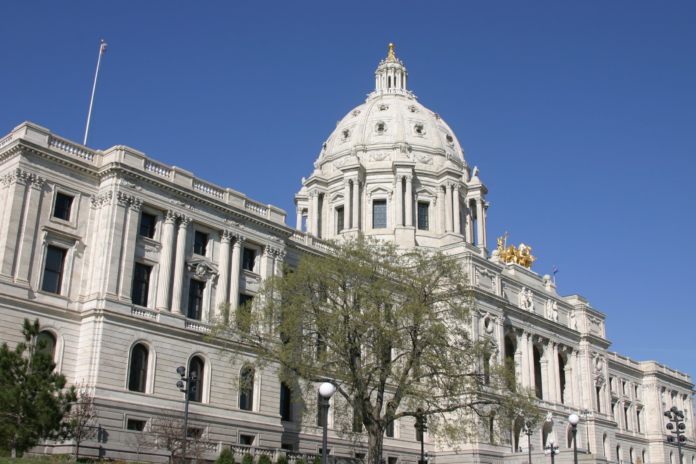(The Center Square) – Gov. Tim Walz said this week that January tax collections will be “substantially higher” than expected, improving a previously projected $1.3 billion deficit.
January tax collections were $296 million above expectations — 14.1% above the forecast.
Senate Majority Leader Paul Gazelka, R-East Gull Lake, and Senate Finance Chair Julie Rosen, R-Fairmont, said in a statement that’s another reason not to raise taxes.
“Minnesotans are persevering through the pandemic and the last thing they need is more taxes. Taking billion in taxes from Minnesotans will slow our fragile recovery and serve only a distraction to balancing the budget, getting vaccines out, and getting kids back in schools,” Gazelka said. “Right now COVID cases are significantly down, revenues are up, and we ought to be thanking the taxpayers for their sacrifices, not asking more of them.”
“This is a very good sign for the upcoming February forecast, where we will get a full accounting of our budget situation,” Rosen said. “Taxes are coming in at or above the forecast, showing the resiliency of Minnesotans in the face of massive economic disruptions complicated by constantly changing closure policies. But – I have [to] wonder where we would be if Minnesota businesses were open?”
The improving picture follows a month after Gov. Tim Walz pitched a $52.4 billion proposed budget, the most expensive budget in state history, with $1.63 billion in tax hikes. Three taxes comprise most of that number.
Walz proposed a fifth-tier income tax rate for household incomes above $1 million or a single earner bringing in $500,000 or more, which would shift Minnesota from the fifth-highest income tax — 9.85% on taxable income over $164,400 a year — to the third-highest.
The governor aims to increase the corporate tax rate for profitable companies from 9.8% to 11.25% starting in 2021 to reap $424 million, which would bump Minnesota to the second-highest corporate rate in the nation, behind New Jersey at 11.5%.
It seeks a higher tax rate on capital gains: 1.5% on sales profits between $500,000 and $1 million, and 4% if more than $1 million.
The budget plan proposes to boost K-12 education by $745 million, enacting a wide range of programs to help plug learning leaks from almost an entire year of virtual learning.
There’s also a $300 million increase of general fund formula for the two years, plus federal investments of $649 million for education recovery.
Walz plans to use $1.04 billion from the rainy day fund to partly bridge a projected $1.3 billion budget deficit in fiscal year 2022-23.
The budget also seeks to increase the Working Family Credit to give more than a million people with low-incomes a tax break.
For economic growth, Walz wants $50 million for the small business forgivable loan program and $1.3 million more for emergency assistance grants.
The plan calls to raise the cigarette tax from $3.04 per pack to $4.04 and tax 35% of the gross retail receipts on nicotine devices and tax electronic delivery devices at 95% of the wholesale sales price.
Republicans have urged Walz to spend more of the state’s nearly $2.4 billion rainy day fund and cut government spending by 5% instead of raising taxes.
A revenue estimating conference later this month should better clarify negotiations between the DFL and GOP.










